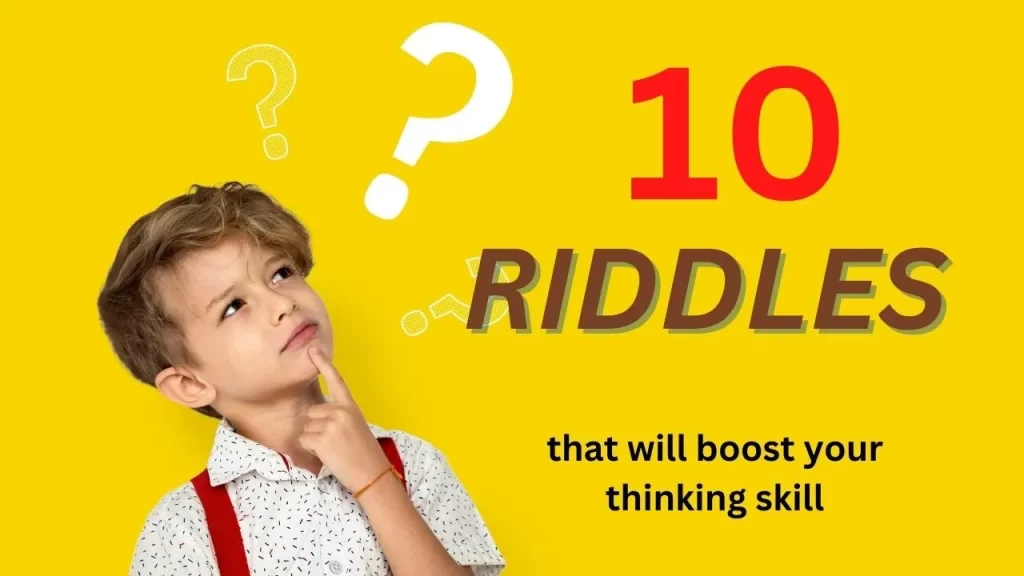English riddles for kids are an excellent way to engage children in a fun and challenging activity while also improving their language skills. Riddles are not only entertaining but also help develop cognitive abilities, critical thinking skills, and creativity.
In this article, we will explore 10 fun and challenging English riddles for kids with answers.
These riddles are not only fun and challenging but also serve as excellent brain teasers for kids. They encourage kids to think outside the box and use their critical thinking and problem-solving skills. By solving these riddles, children develop their language skills, vocabulary, and logical reasoning abilities.
10 Brain Teaser English Riddles for Kids
- I have branches, but no fruit, trunk or leaves. What am I?
- I have lakes with no water, mountains with no stone and cities with no buildings. What am I?
- You see me once in June, twice in November and not at all in May. What am I?
- Where does today come before yesterday?
- It belongs to you, but other people use it more than you do. What is it?
- What kind of band never plays music?
- People buy me to eat, but never eat me?
- I shoot but never kill?
- A man who was outside in the rain without an umbrella or hat didn’t get a single hair on his head wet. Why?
- What is black when it’s clean and white when it’s dirty?
Watch this video for answers!
We hope that you will like this quick Riddles video. For more educational videos, visit our YouTube channel.
Benefits of Riddles for kids
English riddles offer several benefits for kids. Here are some of the key advantages of using English riddles for kids:
Develops critical thinking skills: Riddles require kids to think critically and use problem-solving skills to come up with answers. This can help them develop essential cognitive abilities that they can apply to a wide range of academic and real-life situations.
Improves vocabulary: Riddles expose kids to new words and phrases, helping them to expand their vocabulary. As they learn new words, they can better understand the meaning of the riddle, and use it in their daily conversations.
Encourages creativity: Solving riddles can encourage kids to think outside the box and use their imagination to come up with unique solutions. This can help them develop their creativity, which is essential for problem-solving and decision-making.
Boosts memory retention: Regular exposure to riddles can help kids improve their memory retention. As they learn new riddles, they can better store and recall them, which can help them excel in their academic studies.

We hope that you have enjoyed this article on English riddles for Kids with Answers. Achievers Section is committed to producing quality online learning content for kids and students. Do not forget to subscribe to Achievers Section YouTube channel for more educational videos. Read More Riddles content.



